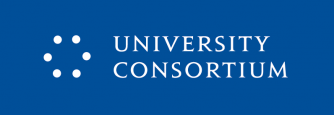Summary
by Elizabeth Teague
Dr Dmitri Trenin, Director of the Carnegie Moscow Center, gave the first Pre-Module talk entitled, “Russia and the West: Why We Got Where We Are Today and Is There a Way Out?”
Dr Trenin explained he was going to look not at how we got where we are, but rather at why we got here, since that is what we need to understand if we are get out of the mess we are in and to build better relations between Russia and West.
The seeds of our current relations were planted when the previous conflict – the Cold War – was settled. How relations have developed since then dates back to that period, to how the post-Cold War world was organised, what kind of system took shape, and how Western and Russian societies have since evolved.
The Cold War was a world conflict that ended with the defeat of Russia. How the defeated player is treated always plays a crucial role in how things subsequently develop. If a conflict ends with the defeated party unhappy with the new world order, and if that party is strong enough to recover, then it will attempt to upset the new world order. Compare how Germany was treated at the end of the First World War with how West Germany and Japan were treated at the end of the Second World War. After its defeat in 1918, Germany was forced to sign a punitive peace treaty and ordered to pay massive financial reparations. It is argued that the treaty’s harsh terms contributed to the rise of Hitler and the outbreak of the Second World War twenty years later. In the cases of West Germany and Japan after the Second World War, by contrast, the defeated powers were peacefully and successfully integrated into the Western system.
But this is not what happened with Russia following the end of the Cold War. The idea that Russia would join (as East Germany then did) the US-led Western system was flawed. Both sides were governed by mistaken expectations. Russia’s hope that it would take the post of second in command and deputy leader of NATO was dashed. The West’s expectation that Russia would evolve into a liberal democracy was also flawed. Rather, communism was replaced by a band of oligarchic capitalists, and by 1994 (or 1996 at the latest) it was clear that Russia was not going to evolve in the way in which the West – and even some in Russia – had hoped. With the global financial crisis of 1998, many in the West wrote Russia off. This was a mistaken assumption. Rather, Russia returned to its traditional independent sovereignty.
The Yugoslav wars, the Chechen wars, NATO enlargement, 9/11 and its consequences, the conflicts in Afghanistan and Iraq -- each successive crisis was a milestone that increased elements of divergence and deterioration between Russia and the triumphalist West. NATO enlargement was seen by Russia as an effort by the West to ensure that Russia would never again be a world hegemon. The “colour“ revolutions in Georgia in 2003, Ukraine in 2004 and 2014, and Kyrgyzstan in 2005, were seen by the West as moves toward democracy, but
by Russia as the West’s geopolitical advance. Indeed, Putin and his associates saw them as attempts to undermine Russia itself.
Meanwhile, the West saw Putin‘s cutting the oligarchs down to size, nationalising Russia‘s oil industry, asserting control over the media and the Russian parliament, and bringing Western-supported NGOs to heel as signs that Russia was moving in the wrong direction. Putin, by contrast, saw these as necessary moves to reestablish central control and stability, and to prevent Russia’s disintegration.
During his presidency in 2008-2012, Dmitry Medvedev was briefly embraced by the West. This was one of the reasons why Putin decided to return to power – and that too was why the attempted re-set between Russia and the US failed. Since 2011, Russia has been in a state of confrontation with the US and of mutual alienation with the European Union.
Dr Trenin said he saw this confrontation as likely to continue for quite a long time. Even though there is some interest on both sides to improve relations, the confrontation will certainly continue as long as the current generation is concerned. Russia is seen by the West as essentially malign, but also as increasingly unimportant. China is now seen by the United States as its No 1 adversary.
How can we look for a way out? First, we need to manage our broken relationship to prevent it from exploding and damaging us all. We need to aim for stability and dialogue. Cooperation is not a possibility in the near term. In the near term, we need rather to ensure that our confrontation does not lead to collision. Collision is a real threat and could be provoked by misperceptions and misunderstandings. So, engagement is essential.
We need to focus on deconfliction, not cooperation; it is too soon for cooperation. But we have common interests, climate change being a leading shared concern and somewhere where we can cooperate. The NATO-Russia Council could play a valuable role as a potential deconfliction mechanism and platform for engagement. Russia needs economic and technological modernisation, and Europe is a lead source of that.
Dr Trenin was not optimistic about improving Russia’s relations with the US any time soon since, he said, all US leaders are very anti-Russian. The Russian political mind and the American political mind do not work in the same way. We Russians do see the need to join forces. International relations means dealing with what you have, not what you want. You have to leave ideology behind. This is what diplomacy is all about. For the US, America is born to lead. America doesn’t join others – the others join America.



